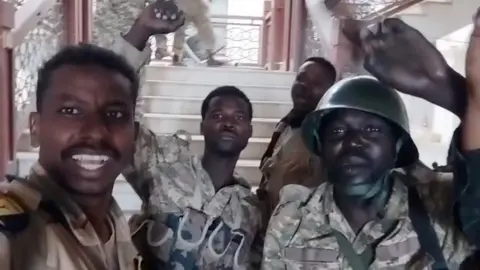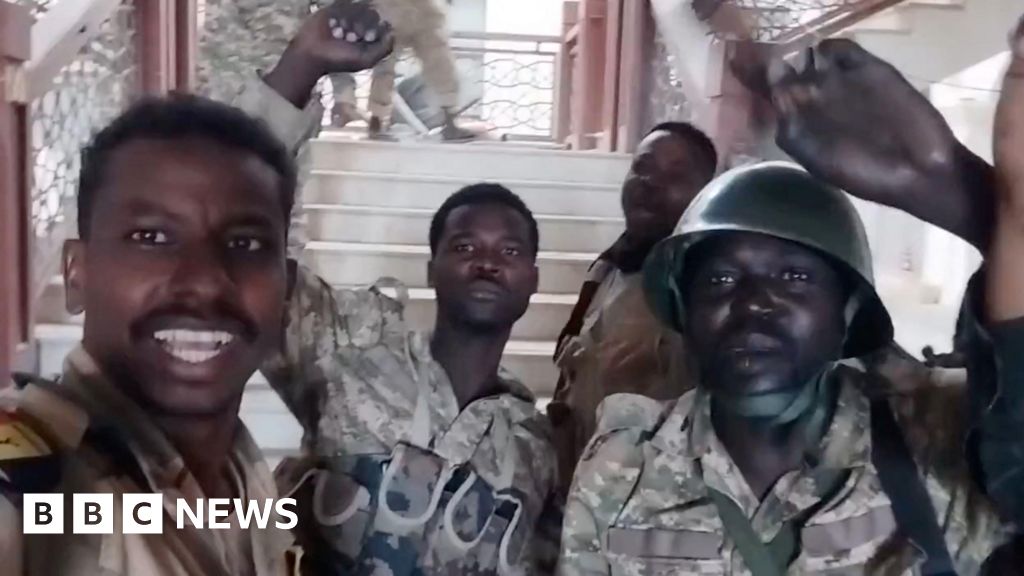BBC News

Reuters
The sight of jubilant soldiers in Khartoum indicates a major step forward in the military campaign, as Sudan’s army has managed to reclaim substantial territory in the past months.
Having lost control of the capital early in the conflict, the Sudanese Armed Forces (SAF) spent two years battling to regain it from the paramilitary Rapid Support Forces (RSF).
With the recent retaking of the presidential palace, the army is optimistic about their chances of reclaiming the remainder of the capital, though they still face a protracted conflict.
The presidential complex, which includes the historic Republican Palace, is symbolic of power, crucial for the military-led government’s claim to legitimacy in countering a “terrorist militia.”
This strategic win allows the army to push RSF fighters out of key areas within the city, including important government buildings and military headquarters.
Despite the presumed loss of control over the capital by the RSF, their fighters remain present in various districts of Khartoum, suggesting that fierce battles are likely to continue as the army seeks to eliminate remaining RSF forces.
General Mohamed Hamdan Dagalo, known as Hemedti, leads the RSF, which controls the majority of Darfur and parts of southern Sudan, while General Abdel Fattah al-Burhan, head of the military-backed government, oversees the eastern and northern regions.
The two leaders previously collaborated in a coup, but their power struggle has since escalated into civil war, beginning in April 2023.
Full control of Khartoum could enhance the army’s strategy to consolidate control over central Sudan and initiate challenges against Hemedti in the Darfur region.
The ongoing civil war has left the Sudanese populace severely affected, with the United Nations labeling the situation as the worst humanitarian crisis globally. Over 12 million people have been displaced due to violence, and widespread food shortages threaten famine across the country.
Areas such as Khartoum are expected to face dire famine conditions soon, exacerbated by looting and restrictions on aid. A change in power within the city may alter the dire humanitarian conditions.
Despite potential shifts, it appears unlikely that immediate improvements will benefit the general populace, as both sides have been accused of weaponizing emergency aid.
The army hopes that reclaiming the Presidential Palace serves as a stepping stone toward broader military success, but experts suggest that neither faction can fully conquer all of Sudan.
Both parties remain steadfast in their commitment to continue fighting, while efforts to revive peace talks have thus far failed.



